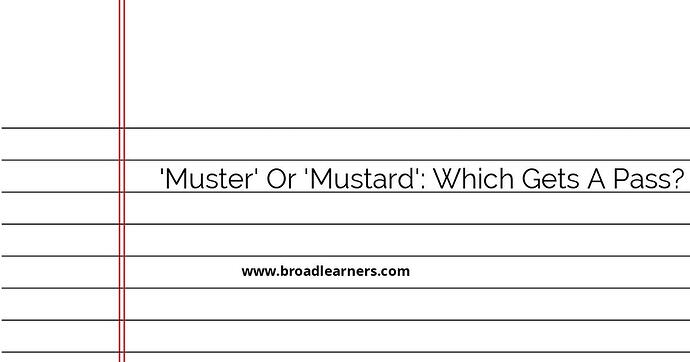Understanding the difference between 'muster' and 'mustard' is essential to ensure correct usage in writing and communication. While these words sound similar, they have distinct meanings and contexts. Let's explore the differences:
- 'Muster':
'Muster' is a verb that can have multiple meanings depending on the context:
- To gather or assemble: When used in the sense of gathering people or things together, such as troops or resources.
- To summon up: Referring to mustering up courage or energy.
- To conduct a roll call or inspection: Especially in military contexts.
Examples:
- He mustered all his strength to complete the marathon.
- The general mustered the troops for inspection.
- 'Mustard':
'Mustard' is a noun referring to a condiment made from the seeds of a mustard plant. It is commonly used in cooking and adds flavor to dishes.
Examples:
- She added a dollop of mustard to her sandwich.
- The recipe calls for a teaspoon of mustard.
Now, let's look at each word in a sentence:
Example of 'Muster':
After receiving the distress call, the captain mustered the crew on deck for a quick briefing.
Example of 'Mustard':
She prepared a delicious salad dressing with a hint of Dijon mustard.
By understanding the distinct meanings of 'muster' and 'mustard,' you can confidently use these words in their correct contexts.
Did I miss anything? Respond below
